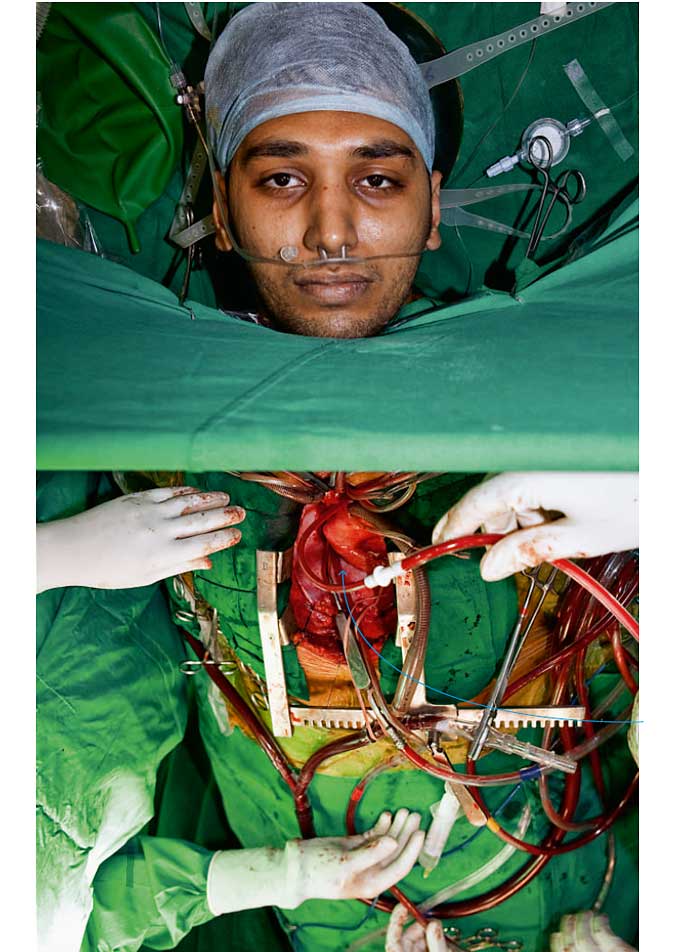
Click image to enlarge
Why someone would want to do this, I haven't a clue.
Swaroup Anand, 23, from Bangalore, is fully conscious as he undergoes open-heart surgery. An epidural to the neck, administered at the city’s Wockhardt Hospital, has numbed his body. Dr Vivek Jawali pioneered the technique ten years ago and has recently released a tutorial on DVD which gives a step-by-step guide to the procedure – sorry, but you can only get a copy if you’re a surgeon or an anaesthetist.Seems there would be considerable risk of respiratory compromise is the epidural went too high. But according to this video, over 400 cases have been performed, including a bypass with aortic valve replacement!
I don't know... I'm not sure I could stomach the sound of the bone saw or, worse, if the surgeon said "Oh, crap..."
-Wes
h/t: Slashdot
Reference:
Chakravarthy MR, Jawali V, Patil TA, Srinivasan KN, Manohar M, Khan J, Jayaprakash K, Das JK, Mahajan V. "High thoracic epidural anaesthesia as the sole anaesthetic technique for minimally invasive direct coronary artery bypass in a high-risk patient." Ann Card Anaesth. 2003 Jan;6(1):62-4.
6 comments:
Same here. It might be interesting to be awake during peripheral surgery on an arm or a leg, but not when the surgeon is all up in my vitals.
Seems to be one of those "Because you can doesn't mean you should".
I'd be super-concerned about a spinal epidural hematoma in my cervical region; anticoagulated, expected to be numb, etc. Won't know about the disaster until post op day 1 when the patient cannot move legs.
C.R.A.Z.Y.
I've had heart surgery and the thought of being awake for something like that terrifies me. I've watched them done in the O.R. too and I don't know of any patients willingly wanting to be awake for something like this. WOW.
An interesting and more than slightly disturbing post. Are there supposed to be any benefits to this, or is it to cut costs, or what is the point? I can't see either the surgeon or the patient deriving any benefits from awake surgery.
The surgeons are able to see how the surgery is affecting the patient. It is useful to be able to request a more deeper breath of air to be taken, and it is also more beneficial to see how the patient is taking what is happening. The person undergoing the surgery of course can't see the process. The patient has a wall separating his line of vision, and is numb from neck down.
Post a Comment